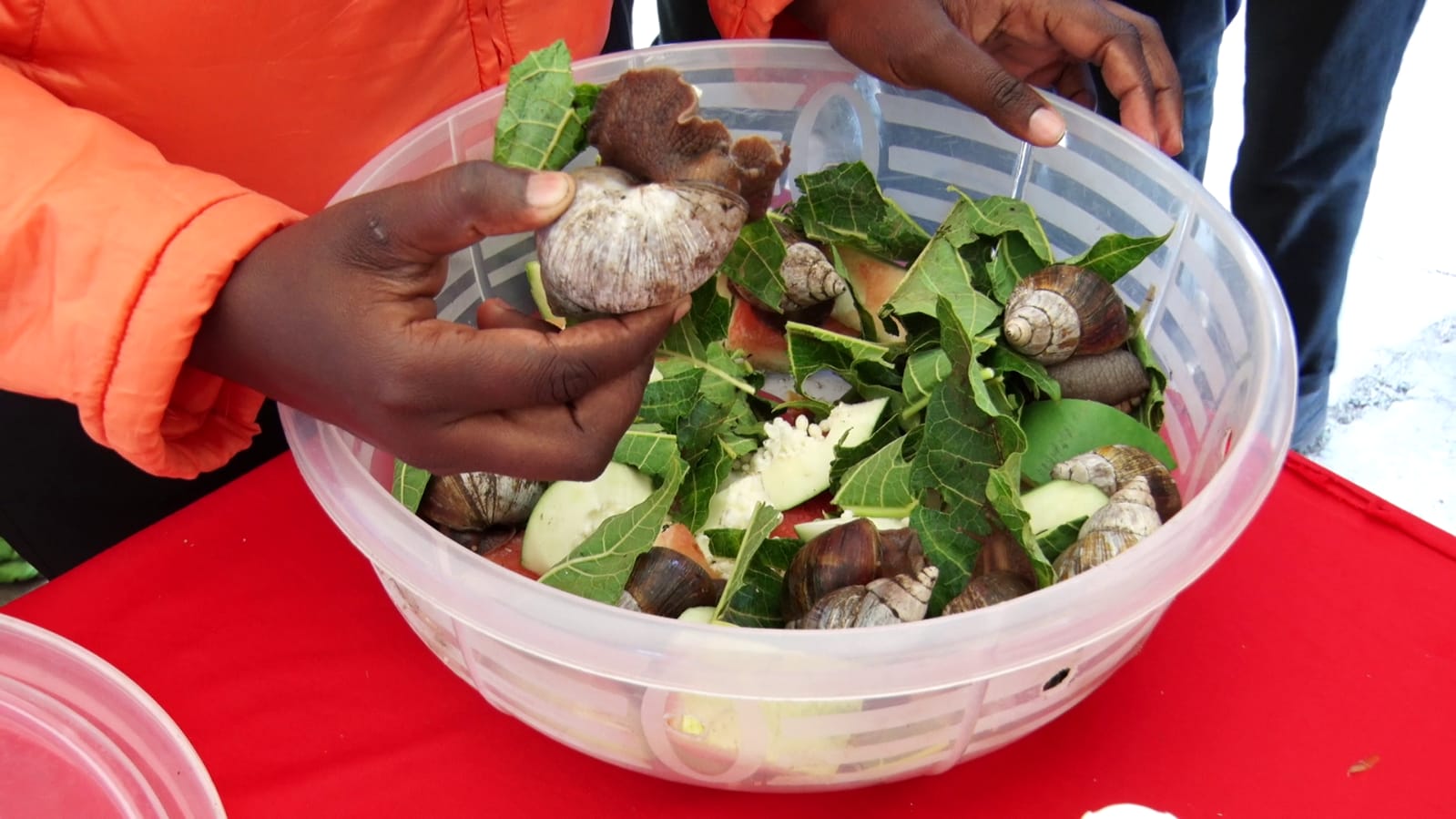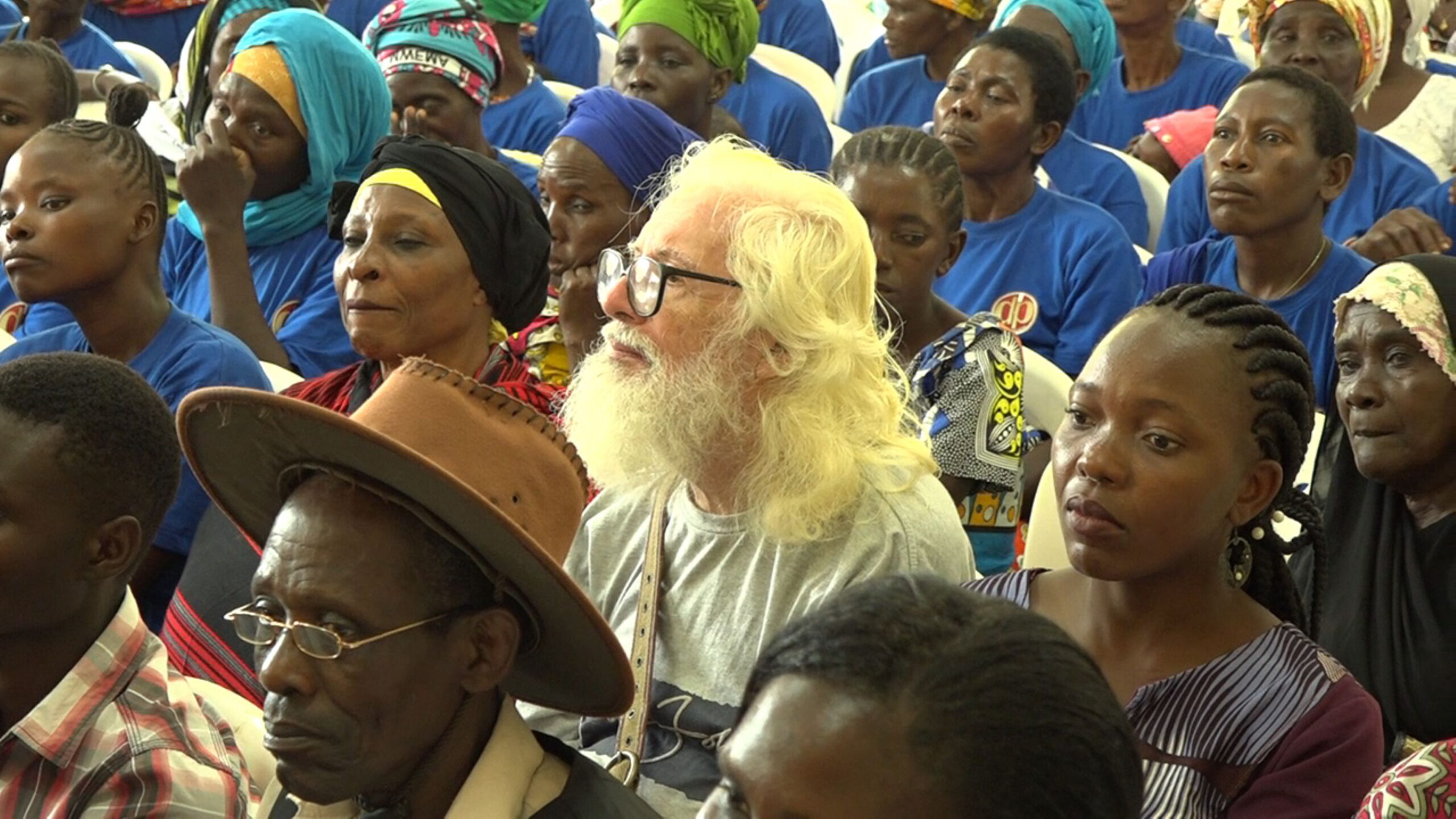A group of researchers from Jomo Kenyatta University of Science and Technology (JKUAT) are in the process of coming up with a cough syrup from snail slime.
Led by Dr Paul Kinoti, the researchers said the research is in its initial stages but the concept has been working in other countries.
They said the research is geared at testing the slime from local snails that they have reared to determine whether it can medically be used as a cough syrup.
Dr. Kinoti, a Food Technologist at the University said they are waiting to be given the go-ahead in their research by the Food and Drug Authority (FDA).
He said the research will involve processing the slime medically to process the drug. It has been applied in other countries including Nigeria, Ghana, among others.
He said once approved, they will be able to help players in the medical field to manufacture a local syrup from the snail mucus.
This, he said, would reduce the cost of importing the drug which can be manufactured locally. The drug will be used to clear the trachea and dry and chesty coughs and treating pneumonia and whooping cough.
“The research is in its formative stages. We realized that in several countries, snail slime is used to make the cough syrup and we want to try it here. Once we get approvals from FDA, we shall commence the research and come up with our locally made products,” said Dr. Kinoti.
Kinoti said the research is among several others that the university has conducted on snails among them value addition of snail meat for local consumption and export.
He said the country is slowly developing a taste for snail meat due to its high protein and low cholestoral value. It has also been found to have reasonable values of Potassium, Calcium, Sodium, Phosphorous, Magnesium, Iron and Zinc.
A kilogram of snail meat goes for between Sh2,500 and Sh3,000 and is mostly sold in high end hotels in the country.
According to Dr. Kinoti, the huge returns have made thousands of farmers adopt snail farming on a large scale, though in collaboration with Kenya Wildlife Services (KWS) and have received training and good practices on snail farming.
However, the researchers advocate for value addition of the meat through processing and preservation since it is quite perishable. They will also be able to get higher returns.
“The demand for snail meat is gaining pace in the country due to its low cholesterol. Its market is high particularly abroad and most farmers have established networks for the external markets which are lucrative,” he said.
Other snail products that the University has produced through research using snail mucus include cosmetics and cream which help to fight scars and skin blemishes and skin ageing.
Its market is high as it’s produced in its raw form.
They have also been advocating for its droppings to be used as manure due to the rich nutrients.
“Most of our farmers are mainly looking for alternatives to either addressing the high rates of fertilizer costs, higher rates of inputs that are really using their cost of production, and therefore use of snails which is less capital intensive with high value products that generate more money seems to be an attractive point to most of these farmers,” argues Dr. Kinoti.


